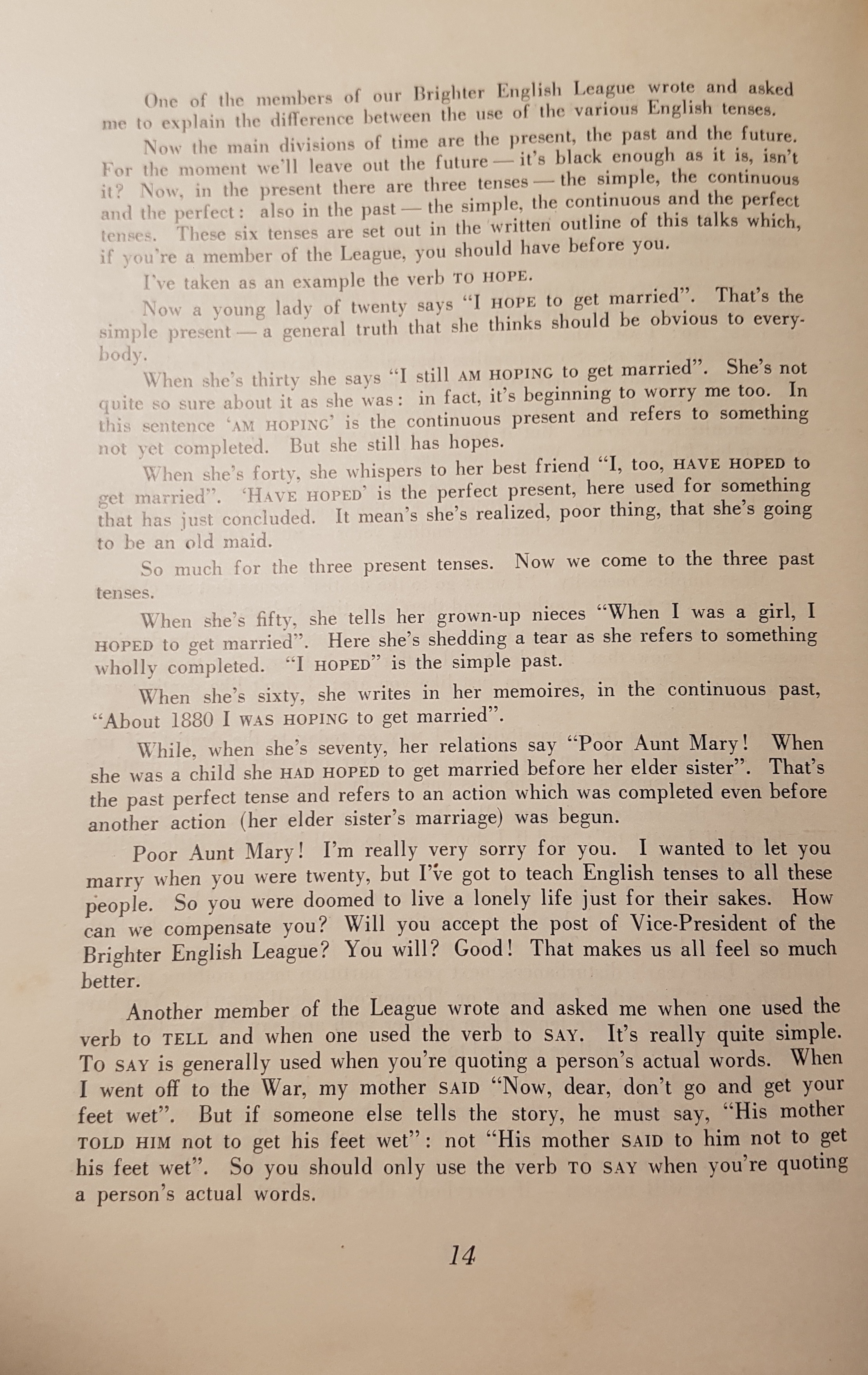|
Let's Speak English
| Contents | Previous Page | Next Page | - Page 14 - One of the members of our Brighter English League wrote and asked to explain the difference between the use of the various English tenses. Now the main divisions of time are the present, the past and the future. For the moment we'Il leave out the future - it's black enough as it is, isn't it'? Now. in the present there are three tenses - the simple, the continuous and the perfcct: also in the past - the simple, the continuous and the perfect tenses. These six tenses are set out in the written outline of this talks which, if you are a member of the League, you should have before you. I've taken as an example the verb TO HOPE. Now a young lady of twenty says "I HOPE to get married". That's the simple present - a general truth that she thinks should be obvious to everybody. When she's thirty she says "I still AM HOPING to get married". She's not quite so sure about it as she was: in fact, it's beginning to worry me too. In this sentence 'AM HOPING' is the continuous present and refers to something not completed. But she still has hopes. When she's forty, she whispers to her best friend "I, too, HAVE HOPED to get married". 'HAVE HOPED' is the perfect present, here used for something that has just concluded. It mean's she's realized, poor thing, that she's going to be an old maid. So much for the three present tenses. Now we come to the three past tenses. When she's fifty, she tells her grown-up nieces "When I was a girl, I HOPED to get married". Here she's shedding a tear as she refers to something wholly completed. "I HOPED" is the simple past. When she's sixty, she writes in her memoires, in the continuous past, "About 1880 I WAS HOPING to get married". While, when she's seventy, her relations say "Poor Aunt Mary! When she was a child she HAD HOPED to get married before her elder sister". That's the past perfect tense and refers to an action which was completed even before another action (her elder sister's marriage) was begun. Poor Aunt Mary! I'm really very sorry for you. I wanted to let you marry when you were twenty, hut I've got to teach English tenses to all these people. So you were doomed to live a lonely life just for their sakes. How can we compensate you? Will you accept the post of Vice-President of the Brighter English League? You will? Good! That makes us all feel so much better. Another member of the League wrote and asked me when one used the verb to TELL and when one used the verb to SAY. It's really quite simple. To SAY is generally used when you're quoting a person's actual words. When I went off to the War, my mother SAID "Now, dear, don't go and get your feet wet". But if someone else tells the story, he must say, "His mother TOLD HIM not to get his feet wet" : not "His mother SAID to him not to get his feet wet". So you should only use the verb TO SAY when you're quoting a person's actual words. 14 |

|
|
| Contents | Previous Page | Next Page |